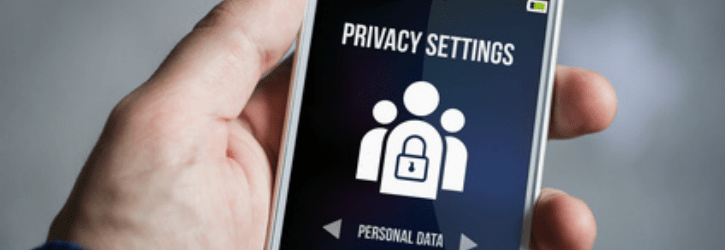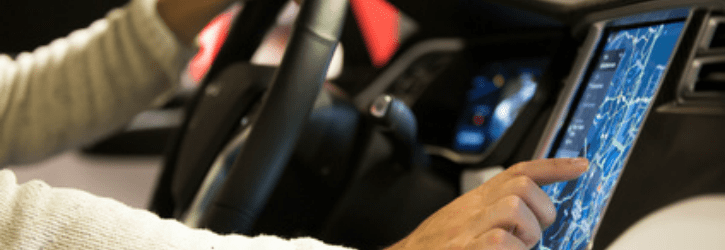Welcome To The Data Leak Lawyers Blog
We focus on the latest news surrounding data breaches, leaks and hacks plus daily internet security articles.
We focus on the latest news surrounding data breaches, leaks and hacks plus daily internet security articles.

We often see mobile apps cybersecurity issues and events in the news. As the use of apps and mobile technology continues to grow, we fear there may be more incidents to come.
And some of those incidents could lead to a great deal of data being exposed or misused for a lot of people; perhaps even millions in a single event.
As data breach compensation experts, we often deal with cybersecurity compensation claims, and many stem from apps. This includes the We-Vibe group action we’re representing victims for, which saw particularly personal and sensitive data for thousands of people misused. We can represent victims for cases on a No Win, No Fee basis, and we’re always happy to offer no-obligation advice.

When it comes to the impact for victims and their rights that are enshrined in law, there’s simply no excuse when it comes to accidental data breaches.
Although “accidents happen”, as they say, there’s so much that organisations can – and must – do to prevent breaches and leaks. A lot of it is simple stuff, and a lot of it comes down to employers putting policies and procedures in place, and employees sticking to them.
We can show you how easy it is with a few simple examples. We can also advise about the rights of victims and inform you what you can do if you are ever the victim of a breach or a leak.

NHS data breaches and technology can go hand-in-hand. A lot of the incidents that we take forward for both individual cases and group action / multi-party claims often involve technology issues.
One of the most common types of cases that we take forward are NHS data breach compensation claims. Not only can they be common, but the impact for the victims – given how personal and sensitive medical data is – can usually mean that they suffer significant distress. That’s why our work to fight for the rights of the victims is so important.
We’re involved with more than one infamous group legal action as well as countless individual claims for medical data breaches. If you have been affected by an NHS data breach, we may be able to help you as well.

There has been a large volume of gaming app data breaches in recent years, and it may well be a trend that’s set to continue as these kinds of apps grow in popularity.
Gaming apps are now used by millions across the world, and there are no doubt hundreds of even thousands of them to choose from worldwide. We’ve previously discussed the issues over many apps having poor security, which recently led to Facebook closing down links with hundreds of apps due to concerns.
Ultimately, people need to be careful. Not only do people need to consider who it is that’s going to be in charge of their personal information, but they also need to consider what happens if a security breach takes place.

Given the continually large volumes of incidents that are happening, it’s important to approach the subject of data breaches and encryption.
In some cases, leaks can happen due to human errors or system problems. Some hacks may take place because 100% effective defence is a hard thing to achieve. This doesn’t excuse an organisation when it comes to their responsibilities, but it’s important for them to understand that it’s about more than just trying to stop incidents; it’s also about preventing damage.
And that’s where encryption and even basic levels of protection is king.

Serious concerns have been raised over security issues that could lead to smart toy data breaches and children being at risk of contact from strangers or exposure to explicit content.
Consumer group Which? has reportedly identified serious security flaws in a number of smart toys that could lead them to being hacked or interfered with. They’re now calling on big name retailers like Amazon, Argos, John Lewis and Smyths to withdraw some “intelligent” and “connected” toys for sale this Christmas. They’re also calling on the government to introduce mandatory security standards for smart toy manufacturers.
We’ve talked in the past about the dangers of smart toys and the “Internet of Things” as greater connectivity opens more doorways for cybercriminals. In the run up to the festive season, the consumer group’s findings are set to cause justifiable concern.

Digitalisation is generally seen as a good thing, but in a day and age when data breaches are so common, should we be concerned when it comes to increasing use of NHS digital technologies?
Like many other industries, the growing use of technology can be great. We can reduce costs and wastage, increase efficiency, and make communication – which is vital – slick and smooth. When it comes to the healthcare industry, increasing use of technology and digitalisation could arguably save lives and improve patient care.
But with increasing digitalisation comes increasing vulnerability for technology to be exploited. Without adequate defences in place, it can be open season for criminals and fraudsters.

Last month, the Tesco parking app data leak was discovered by The Register, and it involved the exposure of tens of millions of number plate images.
It was one of those cases of information that had been accidentally left exposed, and was accessible to anyone who came across it. It was also a clear example of one of the issues we’ve been talking about lately, which is the weaknesses that come with outsourcing information services.
Your defence is only as good as your weakest link, and when there are more links in the chain that arise from outsourcing, data controllers need to be vigilant.

Cyber hack compensation claims are one of the more common types of cases that we represent people for, particularly when it comes to group and multi-party actions.
You can be entitled to claim damages for any distress, suffering, loss of amenity, and for any financial losses as well. Importantly, you don’t have to have suffered an actual financial loss to be able to claim. The mere fact that your information has been hacked can be enough for you to claim for the distress element alone.
Our lawyers are fighting for justice in dozens of different group cases, and many of them have stemmed from cyberattacks.

A seriously concerning security flaw has been discovered which has reportedly allowed hackers to covertly put so-called monitoring implants in iPhones.
The vulnerability is said to have been discovered in January 2019, with Apple releasing a security patch in February 2019. It’s understood that Google’s external ‘white hat’ security team, known as Project Zero, are responsible for identifying the flaw.
There may be thousands upon thousands of people whose phones have been compromised in a way that could allow hackers to have had access to a disturbing wealth of information.
Fill out our quick call back form below and we'll contact you when you're ready to talk to us.